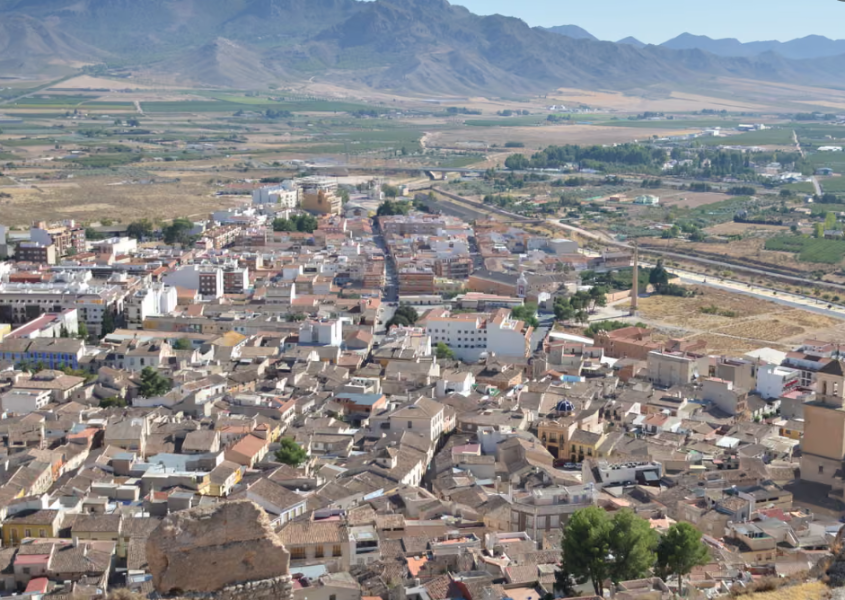-
Posts
37,295 -
Joined
-
Last visited
-
Days Won
5
Content Type
Events
Forums
Downloads
Quizzes
Gallery
Blogs
Everything posted by CharlieH
-
A Daily Mail investigation has revealed a shocking fact: over 80% of crimes went unsolved in the UK last year. Despite police opening 3.9 million cases, a staggering 3.3 million were closed without identifying suspects or proceeding with prosecutions. Alarming data shows sex offenders and thieves among those evading justice, highlighting the dire state of crime resolution. The Daily Mail has created a postcode search tool, allowing readers to see how many crimes in their area resulted in action, whether arrests, fines, or educational courses. In nearly 900 out of 34,000 Local Super Output Areas (LSOAs) in England and Wales, not a single crime was solved in the year ending May 2025. Chalk Farm and Primrose Hill topped the list with all 150 of their reported crimes unsolved. Meanwhile, Bromley Common and Holwood and Marshalswick West in St Albans followed closely behind. On a brighter note, 14 LSOAs achieved a 100% solve rate, though all had minimal crime reports. When reviewing outcomes across 44 police forces, Avon and Somerset Constabulary stood out, solving over a quarter of reported crimes. However, the Met Police ranked lowest, resolving only 8% of 727,313 cases. Experts explain that insufficient evidence and the need for cooperation with the Crown Prosecution Service are major hurdles for police. Crimes like theft and vehicle crime topped the list of unresolved cases, with unsolved rates surpassing 90%. The findings underscore the systemic strain on policing. His Majesty’s Inspectorate of Constabulary noted that officer workloads have increased by a third since 2015, while crime rates rose by 44% over the past decade. Despite a rise in police numbers, it hasn't matched population growth. Brian Booth of the Police Federation emphasized the immense pressure on officers facing daily risks without adequate support. Ex-Met officer Chris Hobbs echoed this, pointing to low morale and administrative burdens preventing arrests. Recent budget cuts have exacerbated the issue. The Met announced plans to reduce front desk services to address a £260 million shortfall, breaking previous commitments for 24-hour counter access across the city. Labour's Keir Starmer pledged to revitalize neighborhood policing with a "named, contactable" officer in every area. The proposal aligns with campaign promises to increase police presence and crime prevention efforts. This investigation starkly highlights the pressing need for investment and reform in policing to improve crime resolution and community safety. Adapted by ASEAN Now from The Daily Mail 2025-08-11
-

USA Trump's 2-Word Threat: National Guard Targets D.C. Homeless!
CharlieH posted a topic in World News
Former President Donald Trump has issued a stern warning directed at the homeless in Washington, D.C., via his social media platform, Truth Social. Trump declared his plan to transform the capital into a "safer and more beautiful" place by removing the homeless population and cracking down on crime, with the anticipated deployment of the National Guard. In his post, Trump included images of tent encampments, insisting, “The Homeless have to move out, IMMEDIATELY.” He assured displaced individuals that alternative accommodation would be available, albeit far from the city center. To criminals, Trump promised swift justice, likening the process to his prior immigration policies: "We went from millions pouring in, to ZERO... This will be easier." Emphasizing toughness, Trump stated, “There will be no ‘MR. NICE GUY.’ We want our Capital BACK,” calling for immediate attention to his demands. His criticism of D.C. as one of the world’s most perilous cities underpins his strategy to reduce violent crime across the nation. Recently, Trump suggested federal oversight of D.C.'s police force and reinforced law enforcement with National Guard troops. This proposal comes in light of violent incidents, such as an attempted carjacking involving Edward Coristine, a former government worker. Trump referenced this case to illustrate the urgency of enhancing security measures. Trump’s comments are supported by Reuters journalist Idrees Ali’s report on the U.S. military's readiness to activate hundreds of National Guard members in Washington, D.C. Trump described the crime situation as "out of control," blaming "thugs" and "gang members" for indiscriminate violence against residents. Press Secretary Karoline Leavitt communicated with Fox News regarding the increased presence of federal law enforcement aimed at protecting D.C. civilians. She emphasized that there would be no safe havens for violent criminals. Leavitt expressed confidence in restoring D.C.’s reputation as an exceptional city, liberated from the clutches of persistent violent crime. Trumps Truth Social Post: Crime in Washington, D.C., is totally out of control. Local “youths” and gang members, some only 14, 15, and 16-years-old, are randomly attacking, mugging, maiming, and shooting innocent Citizens, at the same time knowing that they will be almost immediately released. They are not afraid of Law Enforcement because they know nothing ever happens to them, but it’s going to happen now! The Law in D.C. must be changed to prosecute these “minors” as adults, and lock them up for a long time, starting at age 14. The most recent victim was beaten mercilessly by local thugs. Washington, D.C., must be safe, clean, and beautiful for all Americans and, importantly, for the World to see. If D.C. doesn’t get its act together, and quickly, we will have no choice but to take Federal control of the City, and run this City how it should be run, and put criminals on notice that they’re not going to get away with it anymore. Perhaps it should have been done a long time ago, then this incredible young man, and so many others, would not have had to go through the horrors of Violent Crime. If this continues, I am going to exert my powers, and FEDERALIZE this City. MAKE AMERICA GREAT AGAIN! Adapted by ASEAN Now from The Express 2025-08-11 -

EU British Expats Stunned as Homes in Spain Become 'Worthless'!
CharlieH posted a topic in World News
British expats like Pete Houghton, who settled in Spain’s Orihuela Costa in 2006, have seen their dream homes face potential ruin. What began as an idyllic life in a region known for its sunny climate and beautiful beaches is now overshadowed by a crisis threatening property values and structural safety. Orihuela Costa, housing over 10,000 British expats out of a population of 78,000, has long been popular with foreigners. Its appeal lies in its scenic surroundings and vibrant community. However, unchecked overdevelopment from past property booms has left many homes vulnerable to land subsidence, rendering them almost worthless. Pete, now 69 and on the local district board, highlighted the issue of overbuilding on unsuitable land. He describes a dire landscape where homes, previously valued at significant sums, now sit precariously above dangerous drops. Communities have lost backyards and swimming pools as the ground shifts beneath them. The expat community reports widespread issues, with sewage pipes fracturing and spilling into the environment. Decades of regulatory neglect have left a legacy of corruption and unsafe building practices. Spanish authorities received warnings from the EU about overdevelopment; yet developers continue to ignore legal boundaries. Pete reveals that the Orihuela Costa leads in corruption, with many mayors facing charges. The current mayor, Pepe Vegara, is due in court for alleged document falsification and tax evasion. The system, plagued by bribery, has failed its residents, causing financial and personal distress. Despite the unfolding crisis, Pete remains hopeful. He believes the quality of life in Orihuela Costa surpasses that in the UK, insisting it’s an excellent place for retirement. He is optimistic that collective pressure will address these challenges, restoring confidence for both locals and expats. This situation highlights the complexities and risks involved in overseas property investments. As expats navigate these tough realities, the need for transparency and stronger regulatory compliance becomes evident. Protecting homeowners must be a priority to prevent further tragedies. Adapted by ASEAN Now from The Express 2025-08-11 -
Progressive evangelical group says ideas shared by pastors and amplified by defense secretary are ‘very disturbing A video shared by US Defense Secretary Pete Hegseth has ignited widespread outrage, as it features several pastors advocating for the controversial idea that women should no longer have voting rights. This sentiment, part of a CNN segment, involves discussions by Christian nationalists including Pastor Doug Wilson. Wilson, a co-founder of the Communion of Reformed Evangelical Churches (CREC) based in Idaho, expresses his desire for America and ideally the worl to be Christian-led. Another pastor, Toby Sumpter, envisions a voting structure where decisions are made at the household level, typically led by men after a family discussion. A woman in the segment supports this, recognizing her husband as the head of the household and agreeing to submit to him. Hegseth's repost included the line: "All of Christ for All of Life." The video further details Wilson's belief that women should neither lead in the military nor take on prominent combat roles. Pentagon spokesperson Sean Parnell confirmed Hegseth’s connection to the CREC and his appreciation for Wilson’s teachings. Reports indicate that Hegseth attended the church’s inaugural service in Washington. The progressive evangelical group Vote Common Good voiced strong concerns. Doug Pagitt, their executive director, criticized Hegseth for promoting fringe Christian views. He found it particularly disturbing that such ideas, considered outdated by many, were being amplified by someone in Hegseth’s position. This repost comes against the backdrop of the Trump administration's push for Christian nationalism. This initiative has included re-establishing ties with the Christian right and creating a federal taskforce to address alleged "anti-Christian bias." Earlier in the year, a White House faith office was established, aiming to influence policies related to religious biases. Hegseth’s religious activities have extended into the Pentagon, where he invited his pastor, Brooks Potteiger, to lead prayer services. Such events, held during work hours, have sparked debate about their appropriateness. Employees received invitations via government emails, highlighting the blurred lines between personal faith and state responsibilities. The US Constitution’s first amendment ensures that there is no established state religion. However, interpretations of this have been contentious, leading to ongoing debates about the intersection of governance and religious practice. As these discussions unfold, the backlash underscores the tension between advocating for religious beliefs and upholding democratic rights. The video shared by Hegseth serves as a catalyst for broader discourse on the role and influence of religion in public life and governance. Adapted by ASEAN Now from The Guardian 2025-08-10
-

UK 474 Arrested at London Protest Against Palestine Action Ban
CharlieH posted a topic in World News
In a historic operation, police arrested 474 during a massive protest in London against the ban on Palestine Action, now classified as a terrorist group. On Saturday, the Metropolitan Police cleared Parliament Square and Whitehall, arresting 466 protesters supporting Palestine Action. Additional arrests included five for assaulting officers. The arrest tally marked the highest in a single operation in over a decade, with officers bolstered from other forces to manage the anticipated detentions. The demonstration, organised by Defend Our Juries, drew around 500-600 participants. Despite the peaceful nature of the protest, many were arrested simply for holding signs supporting Palestine Action. Defend Our Juries criticised the arrests as a response to public backlash against the government's policies, which they claim are complicit in international conflicts. They noted that most arrested individuals received street bail and were allowed to return home. Home Secretary Yvette Cooper defended the ban, citing national security concerns and describing Palestine Action as a non-peaceful entity. She thanked the police for maintaining order and reiterating the government's stance. Demonstration participants, including some elderly protesters, carried signs stating opposition to genocide and support for Palestine Action. Many expressed frustration over being labelled as terrorists for engaging in peaceful protest. Among those arrested, Suzan Broom expressed gratitude to fellow demonstrators, while Zoe, another participant, dismissed claims of terrorism, highlighting the peaceful intent of their actions. Zoe wore a patch reading "Jews Against Genocide" to communicate solidarity and reject violent conflict. Amnesty International and other rights groups condemned the mass arrests, highlighting concerns over freedom of expression and the expansive nature of UK terrorism laws. The demonstration, they argued, posed no threat of violence. An unexpected ally, Robert Del Naja from Massive Attack, joined the protest, criticising the UK's growing authoritarianism. Demonstrators continued to voice dissent even as arrests took place publicly outside Scotland Yard. Despite the crackdown, the protest highlighted wide public disapproval of the government's policies on Palestine Action, igniting a larger conversation about civil liberties and the right to protest in the UK. The Home Office maintained that the ban specifically targets Palestine Action rather than broader Palestinian advocacy and stressed the importance of protecting the right to protest. They announced charges against three individuals accused of supporting the banned group. Meanwhile, the government committed £8.5 million in aid to Gaza, following criticism of Israel's expansion plans. The actions underscore the complex socio-political landscape that protesters are navigating in their activism. As the situation unfolds, the debate over the balance between security and freedom continues, with this demonstration marking a significant moment in the ongoing conflict over protest rights and government policies. Adapted by ASEAN Now from The Guardian 2025-08-10 -

Middle East Palestinians face indiscriminate gunfire at food sites
CharlieH posted a topic in World News
Gaza is in turmoil as Palestinians face machine-gun fire near food distribution sites! In a devastating revelation, The Guardian exposes a severe humanitarian crisis unfolding in Gaza. Palestinian civilians gathering at food distribution sites are reportedly being targeted by Israeli gunfire. With tensions soaring, the life-threatening situation has drawn international outrage and demands urgent attention. Ehab Nuor, a 23-year-old barber, is among those who have dangerously faced gunfire. Desperate to collect essential food supplies, Nuor has repeatedly come under fire near distribution centres. His testimony is part of a broader investigation uncovering alarming patterns of violence against hunger-stricken civilians. An extensive Guardian inquiry, involving footage analysis, interviews with medical experts, and gunfire pattern studies over nearly 50 days, has documented that over 2,000 Palestinians have been injured. Tragically, more than 100 individuals were declared dead upon arrival at medical facilities, directly linking their injuries to attempts to access basic sustenance. Footage from more than 30 videos, alongside medical data from hospitals in Khan Younis and Rafah, outlines a sustained pattern of firing on Palestinian civilians. The compelling evidence indicates that Israeli soldiers have repeatedly targeted crowds during aid distribution. This has resulted in thousands being injured and scores killed, constituting a potential violation of international humanitarian law. Several videos depict the chaos and danger faced by civilians. Machine-gun fire is audible, with bullet casings suggesting they belong to Israeli military munitions. Instances of indiscriminate gunfire have been documented on at least 11 separate occasions, all near food distribution sites run by the Gaza Humanitarian Foundation (GHF). For Nuor and others, the risk is all too real. “This is how we get flour in Gaza. We just want to live – enough is enough,” Nuor lamented. Medical professionals have been overwhelmed. Over 2,200 patients have been treated at the Red Cross field hospital in Rafah alone since May, the majority for gunshot wounds. Doctors describe an unprecedented number of injuries, revealing an unmistakable pattern of targeted shooting primarily affecting those arriving at food sites. Mohammed Sleiman Abu Lebda, a 20-year-old Palestinian, recalls the harrowing experience of being caught under fire while waiting for hours at a distribution site. “The gunfire at us was random,” he remembers. Tragically, the man standing beside him was killed, his remains carried away in the bag he had brought to collect flour. The investigation draws attention to the culpability of the Israeli military, which has acknowledged firing “warning shots” but denies targeting civilians directly. Despite these claims, patterns of injury and recovered bullet casings tell a different story. Footage shows the presence of Israeli tanks and audible gunshots even outside designated distribution sites, where crowds gather hoping to receive food. This dangerous environment has led to devastating casualties and prompted widespread international criticism. Weapons experts examining the situation have branded the military actions as “reckless and irresponsible.” British expert Chris Cobb-Smith criticised the extent of small-arms fire used near unarmed civilians, asserting there is no tactical justification for such measures. His American counterpart, Trevor Ball, echoed these concerns, noting the extreme risk posed to civilians by firing so close to them. Hospital data supports these assertions. Eight bullets removed from victims were consistent with Israeli military calibres, including the 7.62x51mm and .50 cal rounds, further implicating the Israeli Defense Forces (IDF) in the violence. Prof Nick Maynard, a consultant surgeon with experience in Gaza, reveals a worrying clustering of gunshot injuries, particularly among young males. He highlights the systematic targeting of specific body parts, with multiple patients arriving with similar wound patterns on the same days as food distributions. The Israeli military’s narrative of self-defence and attempts to manage aid distribution harmoniously is in stark contrast to the grim reality faced by Palestinians. The ongoing violence, perceived by many as deliberate and systematic, has exacerbated the humanitarian crisis in Gaza. As a response, international human rights organisations are calling for an immediate investigation into these events. They stress the importance of upholding international humanitarian laws that protect civilians, especially during conflict. For Nuor and countless others, the terrifying circumstances have turned the simple act of collecting food into a life-and-death ordeal. With international pressure mounting, the world is now closely watching how this troubling situation will unfold. Full original story with video Adapted by ASEAN Now from The Guardian 24 2025-08-10 -

Car insurance cancelled with no warning.
CharlieH replied to Bagwain's topic in Insurance in Thailand
@AA Insurance are on the forum, reach out they will help you. -
Already posted....
-

Expat Health Insurance: Are Pre-Existing Conditions Covered
CharlieH replied to CharlieH's topic in Insurance in Thailand
It previously stated "they DONT go up if you DONT make any claims" -

Expat Health Insurance: Are Pre-Existing Conditions Covered
CharlieH replied to CharlieH's topic in Insurance in Thailand
-

Winston: How might Churchill have battled haemorrhoids?
CharlieH replied to GammaGlobulin's topic in ASEAN NOW Community Pub
He may well have been heard to say....... We will fight them on the beaches— And in the bathroom seats, We will fight them in the doctor’s chair, We will fight them on the sheets, We will never surrender— Though the itch may not cease. We shall fight with creams and ice packs, With fiber and with stool, We shall fight with cautious wiping, And seats that give some cool. We will not yield to pain or burn, Nor bow to swollen grief, For though hemorrhoids may come and go, We'll stand—on our own brief relief. -
Our daily newsletter will be suspended on Mon 11th & Tues 12th. We will resume Weds 13th. Public Holiday.
-

New international flight routes to Thailand in 2025
CharlieH posted a topic in Thailand Travel Forum
As Southeast Asia’s second most visited destination in 2025 (reported by NDTV Travel), slightly trailing behind Malaysia and with Vietnam closely behind, Thailand’s global air connectivity only continues to take off in 2025, with a wave of new international flight routes launching or scheduled throughout the year. These services span Europe, North America, Asia-Pacific, and the Middle East, as airlines tap into growing demand as the stock for Thailand as a travel hotspot continues to grow. If you’ve been eyeing a Thailand holiday in 2025, you might want to stick around to see whether any of these routes are applicable. Region Description Europe New long-haul routes to Thailand, with multiple airlines launching services from the UK, Scandinavia, and France. Notably, Norse Atlantic Airways expands flights from London and Manchester, while Air France resumes flights to Phuket. North America United Airlines launches daily service from the US to Bangkok starting October 26. However, no new routes were introduced by Canadian or Mexican airlines in 2025. Asia-Pacific Asia-based carriers like Hainan Airlines, Thai VietJet, and Thai AirAsia have expanded their services to Thailand, offering new direct routes between Bangkok, Phuket, and destinations in China, India, and Indonesia. Middle East While no new nonstop routes from the Middle East were launched, airlines like Emirates, Qatar Airways, and Etihad increased seat capacity and route frequencies to Thai cities, using fifth-freedom rights. Europe Thailand’s position as a warm winter scape continues to sway the minds of European travellers, and in turn, airlines are feeling the need for newer routes in 2025. During the halfway point of our decade, multiple new long-haul services have launched to cater to those looking to keep warm overseas during the continent’s colder months. Norse Atlantic Airways is leading the charge with a handful of new winter routes to Thailand from Europe, expanding its long-haul flight networks with direct, low-cost flight options. Starting October 26, the low-cost long-haul carrier will begin flying from London Gatwick to Bangkok, operating four times weekly. On November 26, Norse will also offer a weekly seasonal service from Manchester to Bangkok, marking the first-ever nonstop connection between the two cities. Meanwhile, travellers from Scandinavia can benefit from new Norse routes from Oslo to Phuket and Stockholm to Phuket, launching in early December. Both routes will operate once weekly during the winter season. Air France will resume service to Phuket for the first time in years with a new nonstop flight from Paris Charles de Gaulle, beginning November 27. This thrice-weekly route will be served by a Boeing 777-300ER and complements the airline’s existing Paris–Bangkok schedule, which will increase to twice daily during the 2025 winter season. Additionally, Turkish Airlines is expanding its fifth-freedom operations with a new route linking Istanbul to Phnom Penh via Bangkok. This service, launching December 10, will operate three times weekly and allows passengers to travel solely between Bangkok and Phnom Penh, providing a new intra-Asia option via a major Middle Eastern hub. While not launched in 2025, British Airways resumed London Gatwick–Bangkok flights in late 2024 after a four-year hiatus. Carriers such as Austrian Airlines, ITA Airways, and Condor also boosted their Thailand flight frequencies in 2025. North America Travellers from the U.S. will have new access to Thailand in 2025, thanks to United Airlines. From October 26, United will launch a new daily service to Bangkok via Hong Kong, operated by Boeing 787-9 Dreamliners. The move marks the first U.S. airline service to Bangkok in decades. However, no new routes were introduced in 2025 by Canadian or Mexican airlines. Seasonal services from Air Canada, such as Vancouver–Bangkok, were not resumed this year. Asia-Pacific Thailand’s strongest aviation growth this year has come from within Asia, where regional carriers are responding to the travel boom with new direct connections to both Bangkok and Phuket. From China, Hainan Airlines launched a brand-new route from Chongqing to Bangkok on April 10, operating three times a week using Boeing 737-800 aircraft. In South Asia, Thai VietJet Air will begin flights between Mumbai and Phuket starting August 14, with four weekly flights. This new route is the first direct service between the two cities and responds to a surge in outbound Indian tourism to Thailand. Further south, Thai AirAsia has expanded its ASEAN footprint by launching a Phuket to Medan (Indonesia) service on June 27, operating four times weekly. Middle East While no new nonstop routes from the Middle East to Thailand launched in 2025, carriers in the region leveraged their fifth-freedom rights for increased route frequencies. A great example is Emirates, which is leveraging Bangkok for regional fifth-freedom flights. In June 2025, it began flying Bangkok to Da Nang and Bangkok to Siem Reap, both continuing onward to Dubai. Other Middle Eastern carriers such as Qatar Airways, Etihad, Flydubai, and Saudia have not launched new routes in 2025 but have increased seat capacity to Thai cities through more frequent flights and larger aircraft. What this means for travellers Europe leads the way with an influx of new flight routes to Thailand, especially from the UK and Scandinavia, as well as France’s return to Phuket. The United States reconnects to Thailand with United Airlines’ long-haul debut via Hong Kong. Thailand-based low-cost carriers are tapping into demand from emerging regional markets like India and Indonesia, with Phuket as a growing international hub. Fifth-freedom services from Emirates and Turkish Airlines highlight Bangkok’s role as a regional gateway to Southeast Asia. The skies are more open than ever, with a handful of new routes, increased flight frequencies, and greater options. Flying to Thailand has never been easier. What’s left now is for you to plan out your time in Thailand. With new direct flights launching across Europe, North America, and Asia, getting to Thailand in 2025 is easier than ever. Before you land, make your arrival smoother by submitting your Thailand Digital Arrival Card (TDAC) in advance. Please note that this is not the official government portal but a private service that allows you to submit earlier than the standard 72-hour window and provides a faster, smoother entry process. Once you finally arrive, we’ve got great news! We previously rounded up 10 under-the-radar destinations in Thailand that should be on everyone’s bucket list. And if you need a visa refresher, here’s our overview of Thailand’s Visas in 2025. -
Summary Israel's security cabinet has approved a plan to take control of Gaza City, Prime Minister Benjamin Netanyahu's office says Netanyahu earlier said he intended to take over all of Gaza - the approved plan focuses specifically on Gaza City, the largest city in the enclave where hundreds of thousands of people are living Taking control of Gaza City would likely be the first phase of a full takeover of Gaza, our Middle East correspondent says The escalation faces opposition in Israel, while the UN warns that Israel expanding military operations risks "catastrophic consequences" for Palestinian civilians and Israeli hostages "There's nothing left to occupy," a Palestinian in Gaza City said before the plan was approved. Families of hostages protested outside Netanyahu's office as the security cabinet met The Israeli government does not allow international news organisations, including the BBC, into Gaza to report freely The leader of the opposition in Israel says the security cabinet's plan to take over Gaza City is "a disaster" that will "lead to many more disasters". Yair Lapid says a takeover of Gaza City would lead to the deaths of the remaining hostages and the killing of many Israeli soldiers. The plan is "in complete opposition to the opinion of the military and security ranks", he adds. As we reported earlier, the army's chief of staff Lt Gen Eyal Zamir has warned against the move. He accuses Netanyahu of bowing to pressure from far-right security cabinet ministers Itamar Ben-Gvir and Bezalel Smotrich. As a reminder, the Israeli prime minister's coalition relies on the support of ultranationalist ministers who have threatened to quit the government if there is any deal with Hamas. Which parts of Gaza are already under Israeli military control?published at 13:06 Israeli PM Netanyahu's newly-approved plan aims to see Israeli forces move to take control of Gaza City, in the north of the enclave, for the first time during this conflict. The city is home to one million residents and is surrounded by land that has already been under Israel Defense Forces (IDF) control or subject to an evacuation order. Israel says it controls 75% of Gaza, while the UN estimates some 87% of the territory is either in militarised zones or under evacuation orders. Netanyahu's plans to take over Gaza City and 'five principles for ending the war' Early on Friday morning, after a meeting of Israel's security cabinet that lasted several hours in Jerusalem, Israeli Prime Minister Benjamin Netanyahu's office released a statement approving a plan to take control of Gaza City. The security cabinet adopted the plans by majority vote and included "five principles for ending the war", the statement says. "The IDF will prepare to take control of Gaza City while providing humanitarian aid to the civilian population outside the combat zones," it says, detailing the following "principles for ending the war": Disarmament of Hamas Return of all hostages - both living and dead Demilitarisation of the Gaza Strip Israeli security control over the Gaza Strip The existence of an alternative civilian government that is not Hamas or the Palestinian Authority "An absolute majority of cabinet ministers believed that the alternative plan presented to the cabinet would not achieve the defeat of Hamas or the return of the abductees," the statement concludes. Adapted by ASEAN Now from BBC 2025-08-08
-
Many expats worry that their pre-existing health conditions will prevent them from securing health insurance in their new home. This concern is common, especially given the high cost of medical care. However, there is good news, some health insurance providers, including Cigna, offer plans that cover pre-existing conditions, giving you the peace of mind you need to settle in comfortably abroad. This coverage helps protect your savings and ensures fast access to quality healthcare, making it a smart choice for long-term expats. What Qualifies as Pre-Existing Conditions? A pre-existing condition refers to any health problem that you had before your health insurance policy started. This includes any illness, injury, or medical issue that has been diagnosed or treated prior to the policy’s start date. Insurance providers use this term to refer to conditions that existed before you signed up for the plan, even if the condition happened a long time ago. Common examples of pre-existing conditions include diabetes, heart disease, asthma, or even injuries that required past treatment. When applying for insurance, it’s crucial to disclose any health issues you’ve experienced, as this information will impact your coverage. Why Don’t Insurance Plans Cover Pre-Existing Conditions Right Away? When applying for health insurance, you may find that pre-existing conditions are often excluded from coverage initially. This is a common practice in the insurance industry, primarily to help manage risk and keep premiums affordable for everyone. The main reason for this exclusion is the higher likelihood of future claims. If you have an existing health condition, the insurer anticipates you may need treatment for it, which increases the overall cost. To balance this risk, many plans will exclude pre-existing conditions for a certain period after you sign up. Some insurance plans, often with simplified plans, exclude these conditions entirely. How Do Expat Insurance Plans Cover Pre-Existing Conditions? Expat health insurance providers take different approaches when it comes to covering pre-existing conditions. While most plans don’t cover these conditions right away, they offer options to manage them: Waiting Periods: Many plans will cover pre-existing conditions after a waiting period, typically ranging from 12 to 24 months. During this period, you can’t make claims for that specific condition, but once the waiting period ends, coverage for it may be provided. Premium Loading: Some insurers may offer coverage for pre-existing conditions but charge higher premiums. This is called "premium loading." In some cases, the insurer may also limit the coverage or exclude certain treatments related to the condition. Medical History Review: Insurers may require a detailed medical history review, known as medical underwriting, before accepting you into a plan. Based on the review, they may determine if they will cover your pre-existing condition and if the waiting period or higher premium is necessary. Cigna’s plans are designed to offer flexibility for expats, providing options for coverage of pre-existing conditions. What to Look for in an Expat Health Insurance Plan When selecting an expat health insurance plan, it’s important to consider the following: Clear Coverage for Pre-Existing Conditions: Ensure the plan clearly outlines what counts as a pre-existing condition, what is covered, and what is not. Waiting Period for Coverage: Many plans may cover pre-existing conditions, but only after a waiting period. It’s important to know how long this period lasts and whether the coverage is limited or complete after it ends. Flexibility in Coverage: Choose a plan that allows you to adjust coverage for specific needs, such as dental care, vision care, or chronic illness support. Access to Private Hospitals and Worldwide Coverage: It’s essential to have access to a network of private hospitals. Look for plans that offer private hospital networks and direct billing options, so you don’t need to worry about upfront payments. Why Cigna is a Trusted Choice for Expats Cigna is one of the most trusted health insurance providers for expats. With over two centuries of experience, they have developed a strong reputation for supporting expats with comprehensive and flexible health plans. Here’s why Cigna stands out: Customisable Health Plans: Cigna’s plans are tailored to meet the specific needs of expats. When you apply, Cigna reviews your full medical history, providing coverage options based on your health and any pre-existing conditions you have. Global Network of Healthcare Providers: Cigna has a network of over 1.7 million hospitals, clinics, and doctors worldwide. This global coverage ensures that expats can receive quality care no matter where they are. Flexible Plans: Cigna offers multiple coverage options, from the standard Silver plan to the more comprehensive Platinum plan. Each plan is designed to give you the right level of coverage, including hospital visits, long-term care, and mental health support. Direct Billing: With Cigna’s direct billing system, you can avoid upfront payments when visiting private hospitals. They pay hospitals directly, making the process simple and hassle-free. 24/7 Support: Cigna offers reliable customer support, available around the clock. Whether you need assistance with claims or have questions about coverage, Cigna’s team is always available to help. Living as an expat in Thailand comes with many benefits, but securing the right health insurance plan is essential for your wellbeing. For those with pre-existing conditions, don’t worry, you’re not left without options. Providers like Cigna offer flexible plans that can cover these conditions, with varying waiting periods or slightly higher premiums depending on your needs. Sponsored
-

An Operating Manual for Understanding the Thai Mind
CharlieH replied to captain_shane's topic in ASEAN NOW Community Pub
Overall, it reads more like a theory than an on-the-ground reality. -
We've had one for years thanks......its right here..... https://aseannow.com/forum/21-thailand-photography-and-video-forum/
-
In a bold move, Jumilla bans Muslim festivals in public spaces! Jumilla, a small town in Spain's Murcia region, has erupted in controversy after banning Muslim festivals from public venues such as civic centres and gyms. This groundbreaking decision, introduced by the conservative People’s Party (PP), was passed with the abstention of the far-right Vox party while facing staunch opposition from local left-wing parties. The newly implemented rule stipulates that municipal sports facilities are reserved for activities that align with the town's identity unless they are officially organised by the authorities. Vox celebrated the decision online, asserting, “Thanks to Vox, the first measure to ban Islamic festivals in Spain’s public spaces has been passed. Spain is and will remain the land of Christian people.” Critics have been quick to denounce the measure as discriminatory. Mounir Benjelloun Andaloussi Azhari, president of the Spanish Federation of Islamic Organisations, slammed the ruling as “Islamophobic and discriminatory,” highlighting that no other religion is being similarly targeted. He voiced deep concern about the increasing wave of racist rhetoric and incidents, stating, “For the first time in 30 years, I feel afraid in Spain.” Jumilla, which boasts a population of around 27,000, includes a minority of approximately 7.5% from predominantly Muslim countries. The controversial decision could face legal challenges as it potentially violates article 16 of the Spanish constitution, which guarantees freedom of ideology, religion, and worship. Francisco Lucas, the prominent socialist leader in Murcia, criticised the ruling on social media, accusing the PP of breaching the constitution and endangering social cohesion for the sake of political power. Historical context adds complexity to the issue. Once part of the Roman Empire, Jumilla came under Arab control in the eighth century and remained an Arab town for several centuries. It wasn't until the mid-13th century that Christian troops led by Alfonso X of Castile invaded and took control, ending Arab rule. However, the town's rich history is now at the heart of the debate. Former socialist mayor Juana Guardiola raised questions about what the authorities mean by "identity," pointing to the area's diverse cultural history. “What about the centuries of Muslim legacy here?” she asked, prompting discussions about selective interpretations of history. The decision has ignited a fierce national debate and legal scrutiny, with many questioning how this will impact Spain’s multicultural fabric. The ban has struck a chord, causing ripples beyond Jumilla, as both supporters and critics closely monitor the unfolding situation. The decision could potentially set a precedent for other regions, making it a pivotal moment in Spain’s ongoing conversation about identity, religion, and inclusivity. As the debate continues, Jumilla remains in the spotlight, with the legal and social outcomes yet to be determined. The controversial ruling has made this small town the focal point of a larger discussion on religious freedom and cultural identity in Spain. Adapted by ASEAN Now from The Guardian 2025-07-05
- 76 replies
-
- 22
-

-

-

-

-

-

-
US President Donald Trump's new tariffs on more than 90 countries have officially come into effect, signalling a decisive shift in US trade policy. Just before the negotiation deadline, Trump claimed on his Truth Social platform that the tariffs were bringing significant revenue into the United States. India faces a substantial 50% tariff set to begin on 27 August unless it reduces its purchase of Russian oil. This move underscores Trump's strategy of using economic measures in international relations. Additionally, Trump threatened a 100% tariff on foreign-made computer chips to push tech companies towards investing in the US. This pressure has already led Apple to announce a $100bn investment in its American operations. The Trump administration recently extended the deadline for countries to negotiate lower tariffs to 7 August. This extension has resulted in a flurry of diplomatic activity as nations aim to avoid what Trump terms "reciprocal tariffs." His administration's goal is to reshape global trade, which he argues has been unfair to the US. Export-dependent Southeast Asian countries, such as Laos and Myanmar, are among those hardest hit, facing tariffs as high as 40%. Analysts suggest that Trump has strategically targeted nations with strong trade ties to China, reflecting broader geopolitical objectives. Asian stock markets had a mixed reaction to the tariffs. Markets in Japan, Hong Kong, South Korea, and China showed resilience with slight gains, while India and Australia experienced declines. Economist Bert Hofman from the National University of Singapore noted that the latest tariffs might provide some stability after months of trade volatility, allowing for more consistent economic assessments despite the ongoing disruptions. Several major economies have already reached agreements to mitigate the impact of these tariffs. The UK, Japan, and South Korea secured lower tariff rates compared to those initially threatened. Simultaneously, the European Union agreed to a framework deal with the US, accepting a 15% tariff on its goods. Switzerland, however, is yet to reach an agreement and faces a high tariff of 39%, posing a potential threat to its economy. An extraordinary meeting is planned to address this challenge. Taiwan, a key ally of Washington in Asia, has been handed a 20% tariff. President Lai Ching-te described this rate as "temporary," expressing hope as discussions with the US continue. Additionally, Canada saw an increase in tariffs from 25% to 35%, with Trump citing a lack of cooperation in controlling drug flows across the border. However, due to the United States-Mexico-Canada Agreement (USMCA), most Canadian exports remain unaffected. Tariffs on Mexican goods have been paused for 90 days while negotiations persist, indicating ongoing diplomatic efforts to forge a new trade agreement. These tariffs mark a significant moment in international trade relations, showcasing Trump's commitment to reshaping global trade frameworks. As countries worldwide adjust to these changes, the long-term effects on the global economy and international diplomacy remain uncertain. Adapted by ASEAN Now from BBC 2025-08-07
-
Myanmar's figurehead president who came to power after a 2021 coup, Myint Swe, has died, the South East Asian nation's military leaders said. He was 74. Before his death, Myint Swe had been on medical leave for over a year due to declining health. Junta leader Min Aung Hlaing has been performing Myint Swe's largely ceremonial duties since July 2024. The country's junta named Myint Swe acting president after it overthrew the civilian government led by Aung San Suu Kyi. He died in a hospital in the capital Nay Pyi Taw at 08:28 local time (02:58 GMT) Thursday due to "neurodegenerative diseases and related neurological disorders", the junta said. A state funeral has been scheduled for Myint Swe, it said. As acting president, he endorsed multiple extensions to the country's state of emergency. On Wednesday, the state-run Global New Light of Myanmar newspaper published a junta statement announcing that Myint Swe was in a "critical condition", after he "experienced weight loss, loss of appetite, fever, and a decline in cognitive function" in July. In early 2023 Myint Swe "began experiencing sluggishness in movement and the ability to consume food and nutrients", the statement said. It added that he received treatment in Singapore in April 2024 and went on medical leave in July 2024. Myanmar has been in turmoil since the 2021 coup, with a civil war persisting between junta forces and ethnic armed groups. Min Aung Hlaing announced in March that the country would hold a national election in December 2025 or January 2026 - the first vote since the junta seized power in the coup. But critics say the election is a sham designed to maintain the junta's power through proxy political parties. Last week, Myanmar's junta ended the state of emergency and transferred power to an interim government to pave the way for the election. But Min Aung Hlaing, who remains the acting president and military chief, retains de facto control over the country's leadership. Adapted by ASEAN Now from BBC 2025-08-07

.webp.99de4f35aecd7ca21ca8d87cad467e7d.webp)

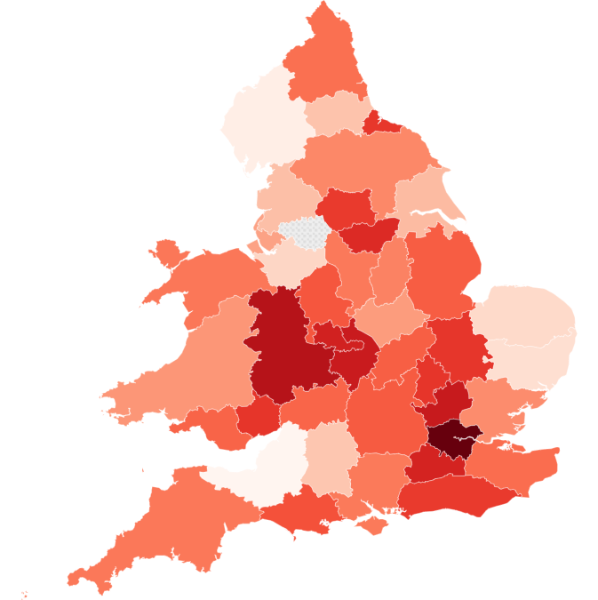
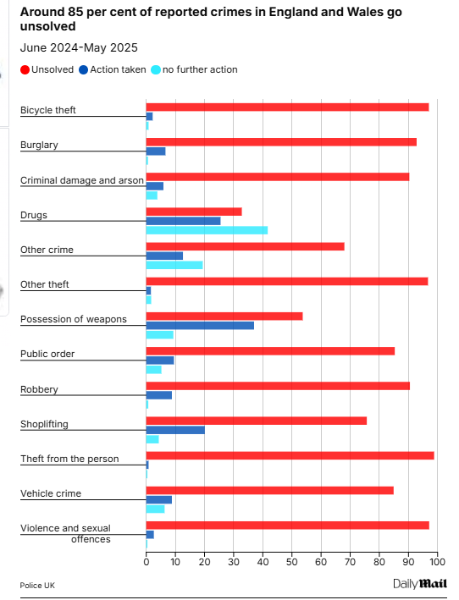
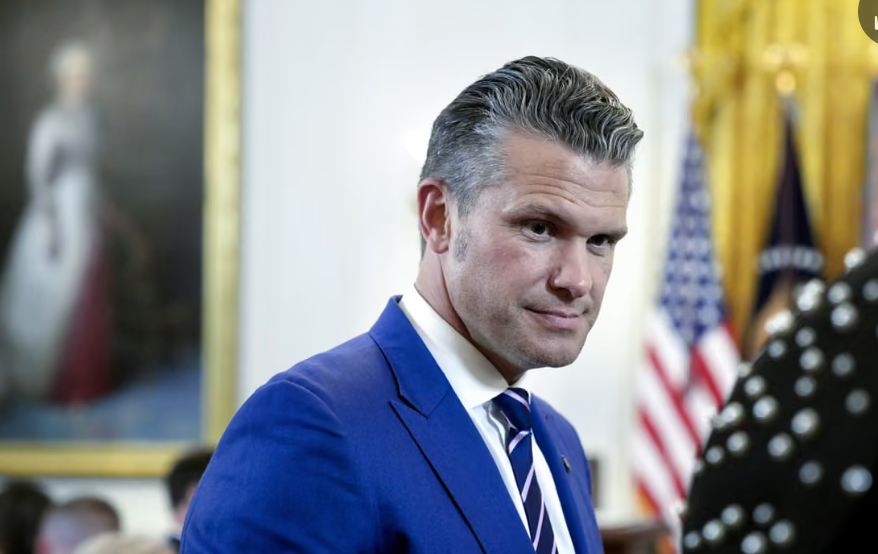
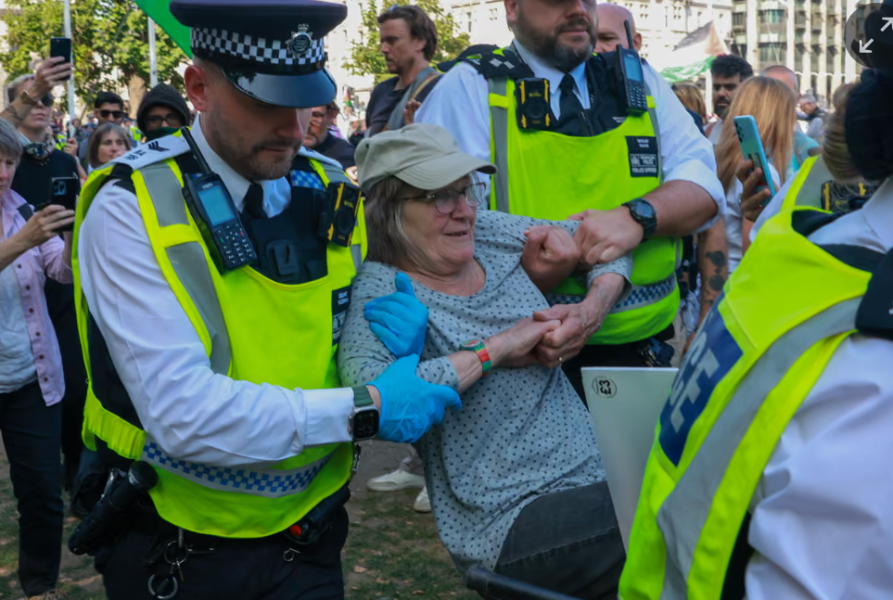

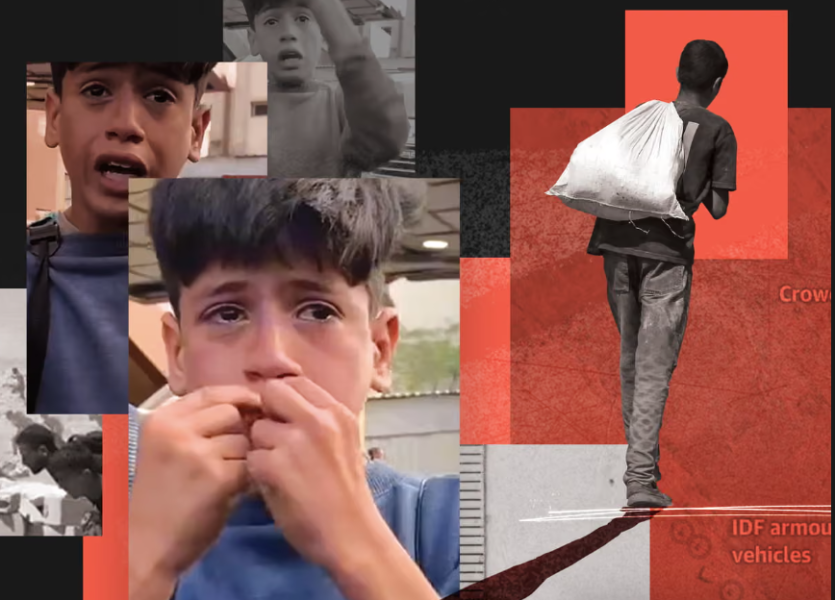


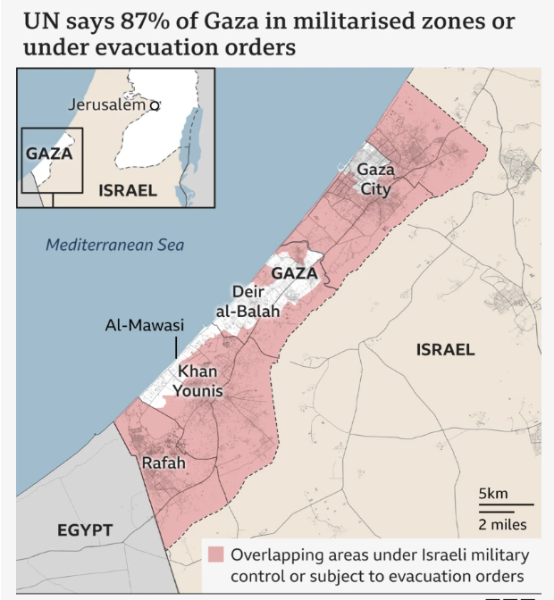
.webp.5d973d90c708690c247bbdf9415390e5.webp)
.webp.f821a7e70da988698e8341632a853352.webp)
.webp.09c17c5c2499f770a5091111bfb4edac.webp)
